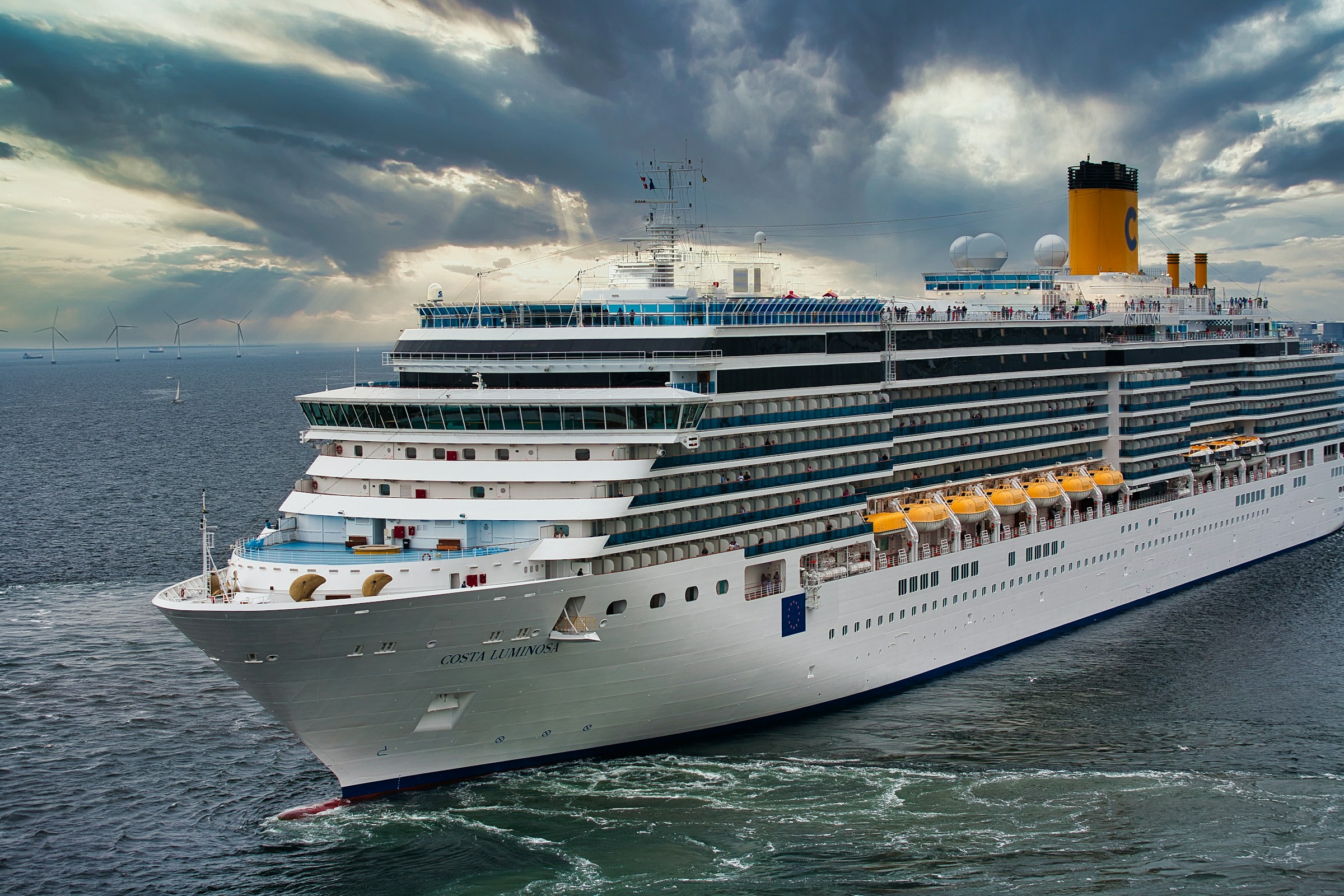In today’s world, sustainability is a crucial element in all aspects of our lives, and travel is no exception. More specifically, cruise lines worldwide are shifting towards more sustainable practices, and we, as passengers, can also contribute to this initiative. In the following sections, we’ll explore how we can plan a green cruise in UK waters that aligns with our values of environmental preservation – focusing on the use of sustainable fuels, energy-efficient ship designs, reducing waste, and the use of clean water.
Selecting Lines with Environmental Initiatives
Being environmentally responsible starts with choosing cruise lines that align with your sustainability values. Several companies prioritize environmental conservation, and it’s essential for us to give precedence to these over others. In this journey, it’s crucial to understand a line’s environmental policies, such as reducing carbon emissions, sustainable waste management, and efforts to decrease water pollution.
A lire en complément : How to find a UK cruise that stops at secluded islands?
Many cruise lines have taken significant steps to reduce their carbon footprint. This includes investing in alternative fuels like liquefied natural gas (LNG) and biofuels, which significantly reduce carbon emissions compared to traditional fuels. The use of exhaust gas cleaning systems, also known as scrubbers, is another approach cruise lines are using to reduce air pollutants.
Another aspect to consider is the water management practices of the cruise line. This includes both their water consumption and how they treat and discharge water. Some cruise lines have implemented innovative systems to purify and reuse water, significantly decreasing their water footprint.
Cela peut vous intéresser : Which UK cruises offer the best live entertainment options?
Opting for Ships with Energy-Efficient Designs
The design of the ship plays a significant role in its overall environmental impact. Modern cruise ships are designed to be more energy-efficient, reducing both fuel consumption and carbon emissions. So, when planning your cruise, it’s beneficial to opt for these newer, greener ships.
These ships employ various energy-saving mechanisms, like LED lighting and high-efficiency appliances, which consume less power. Moreover, many of these ships are designed to harness renewable energy. Some ships, for instance, use solar panels to generate a portion of their electricity, reducing their dependency on fossil fuels.
The hull design of these ships is also crucial in reducing fuel consumption. Modern ships often have streamlined hulls and use advanced coatings to reduce resistance, allowing the ship to glide smoothly through the water and consume less fuel.
Practicing Sustainable Travel Onboard
Once you’ve selected an environmentally friendly cruise line and ship, the next step is to practice sustainable behaviors during your journey. This includes minimizing waste, conserving water, and reducing energy use.
Adopting a zero-waste approach can greatly contribute to sustainability. You can start by avoiding single-use plastic items and opting for reusable alternatives instead. Most cruise lines are striving to eliminate single-use plastics, and as passengers, supporting this initiative is a step in the right direction.
Consciously conserving water is another aspect of sustainable travel. This includes simple steps like taking shorter showers, reusing towels and limiting the use of laundry services.
Lastly, conserving energy onboard can also help reduce the overall environmental impact of your trip. This can be as simple as switching off lights and unplugging devices when not in use.
Supporting Local Communities
Sustainable travel isn’t just about preserving the environment, it’s also about supporting local communities. When your cruise docks, opt for locally guided tours and buy local products. This contributes to the local economy and helps support sustainable tourism.
Moreover, be conscious of the cultural and natural heritage of the places you visit. Respect local customs and norms, and avoid actions that could harm the local environment or wildlife. This notion extends to the marine life you encounter on your cruise. Appreciate the beauty of the ocean and marine life, but keep a respectful distance and avoid disturbing their natural habitats.
Conclusion
In conclusion, planning a sustainable cruise involves careful consideration of your chosen cruise line, the ship, your practices onboard, and your interaction with local communities. It requires a proactive commitment to sustainability, which can significantly contribute to the preservation of our environment.
In the end, the goal is not just to travel, but to do so responsibly, ensuring that future generations can also experience the beauty of our planet. With a bit of planning and a lot of commitment, you can enjoy a fantastic cruise experience that aligns with your values of environmental sustainability.
Embracing Cruise Lines’ Innovation Towards Sustainability
As we delve deeper into planning an eco-friendly cruise, it is worth noting that many cruise lines have embraced innovative technologies to reduce their environmental impact. Two such entities, MSC Cruises and Royal Caribbean, have been at the forefront of implementing environmentally friendly initiatives.
MSC Cruises, for instance, has been actively working on reducing its carbon emissions. The company has invested in shore power technologies, which allow their ships to turn off their engines and connect to local electrical grids while docked. This considerably reduces the carbon emissions while the ships are at port. Furthermore, MSC Cruises has been focusing on reducing its dependency on fossil fuels by using liquefied natural gas for their newer fleet.
On the other hand, Royal Caribbean has taken the initiative to eliminate single-use plastics from their operations. They have replaced plastic straws, cups, and other items with compostable or recyclable alternatives, promoting a zero-waste approach on their ships. The company has also implemented advanced wastewater treatment systems to purify and recycle water, greatly reducing its water footprint.
These are just a few examples of how cruise lines are making strides in sustainability. When planning your eco-friendly cruise, consider companies like these that actively strive to reduce their environmental impact.
Sustainable Shore Excursions and Onboard Activities
An eco-friendly cruise does not end with choosing a sustainable cruise line or an energy-efficient ship. Your choices during shore excursions and onboard activities also matter. P&O Cruises, for instance, offers a range of shore excursions that allow you to explore local communities while minimising your environmental footprint.
When choosing shore excursions, look for activities that support local economies and respect the environment. Avoid tours that involve harmful interactions with wildlife or damage to local habitats. Opt for experiences that educate you about the local culture, history, and natural environment.
Onboard, choose activities that align with your sustainability values. Participating in educational seminars about marine conservation, climate change, or local cultures can enhance your cruise experience while also enhancing your understanding of these critical issues.
Moreover, many cruise ships have started to offer activities that promote sustainability. This could include workshops on recycling, energy conservation, or sustainable living. Participating in these activities not only enriches your cruise experience but also helps reduce the environmental impact of your voyage.
Conclusion
Undoubtedly, planning an eco-friendly cruise in UK waters involves more than just selecting a green cruise line or an energy-efficient ship. It requires a commitment to making sustainable choices throughout your journey, from the onboard activities you participate in, to the shore excursions you choose, and even the way you interact with local communities.
By following the guidelines in this article, you can ensure that your cruise not only offers a memorable experience but also contributes positively to the environment and local communities. Remember, our choices as travellers have a significant impact, and with careful planning, we can help shape a more sustainable cruise industry.
In the end, the aim is not just to explore the beauty of the UK waters, but to do so in a way that respects and preserves this beauty for future generations. This isn’t just about making a one-off choice to take an eco-friendly cruise; it’s about adopting a whole new approach to travel, one that places sustainability at its heart.











